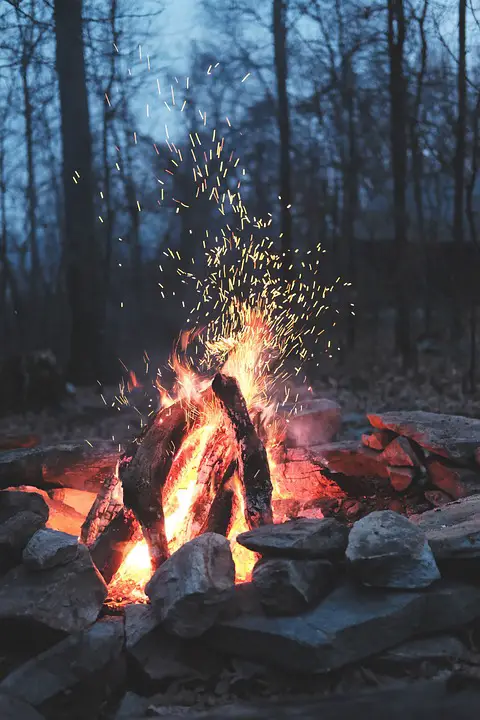Camping is a fantastic way to connect with nature and explore the great outdoors. While summer camping can provide unforgettable experiences, it also comes with a unique set of challenges, particularly if you find yourself in a hot weather camping scenario. This ultimate guide will equip you with everything you need to know to stay safe and enjoy your camping adventures during a scorching heatwave. So, pack your bags, put on your sunscreen, and let’s dive right in!
Preparation and Planning
Before embarking on your hot weather camping adventure, proper preparation and planning are crucial. Here are some key steps to follow:
– Choose the Right Destination: Research campgrounds or wilderness areas that offer shade, access to water, and potentially cooler temperatures.
– Pick the Ideal Time: Schedule your camping trip for early mornings or late afternoons when the heat is less intense.
– Plan Your Activities: Opt for activities that can be enjoyed in shaded areas or near bodies of water to keep cool.
– Pack Essential Items: Sunscreen, hats, lightweight and loose-fitting clothing, a well-insulated hydration system, a portable shade canopy, and a quality tent with proper ventilation are essential hot weather camping items.
– Check the Weather: Keep an eye on the forecast and adjust your plans accordingly. Be prepared for sudden weather changes.
Staying Hydrated
Hydration is key to staying safe and comfortable in hot weather camping conditions. Here’s what you need to know about staying hydrated:
– Drink Plenty of Water: Ensure you have an adequate supply of water and drink regularly, regardless of feelings of thirst.
– Avoid Dehydrating Beverages: Alcohol and caffeinated drinks can dehydrate you more quickly, so it’s best to limit their consumption during hot weather camping trips.
– Use Electrolyte Supplements: Replace lost electrolytes through sports drinks or electrolyte packets.
– Consume Hydrating Foods: Fresh fruits and vegetables with high water content can be a tasty way to replenish fluids.
Stay Cool and Protect Yourself from the Sun
Excessive heat and sun exposure can lead to heat-related illnesses and sunburns. Follow these tips to stay cool and protect yourself:
– Seek Shade: Set up camp or rest in shaded areas, use umbrellas or trees for shade during outdoor activities, and consider a portable shade canopy.
– Wear Appropriate Clothing: Choose lightweight, loose-fitting, and light-colored clothing to protect against the sun, promote airflow, and allow for easier sweat evaporation.
– Apply Sunscreen: Use a broad-spectrum sunscreen with a high SPF, and reapply every few hours, especially after swimming or heavy sweating.
– Wear a Hat and Sunglasses: Protect your face, eyes, and head by wearing a wide-brimmed hat and sunglasses with UV protection.
Proper Food Storage and Hygiene
Hot temperatures pose unique challenges when it comes to food storage and hygiene. Consider the following recommendations:
– Store Food Correctly: Keep perishable food in airtight containers and store them in coolers with ice packs or ice cubes.
– Minimize Open Food Exposure: Open food containers or cans should be consumed promptly and not left exposed to the heat.
– Practice Proper Hygiene: Regularly wash your hands with soap and water or use hand sanitizers to prevent any contamination.
– Dispose of Waste Properly: Follow leave-no-trace principles and pack out all trash, particularly food waste.
FAQs Section
Q1: How do I know if I am experiencing heat exhaustion or heatstroke?
Heat exhaustion symptoms include heavy sweating, weakness, headache, nausea, and dizziness. If untreated, it can progress to heatstroke, which is characterized by a high body temperature, confusion, seizures, and even loss of consciousness. Seek medical assistance immediately if you suspect heatstroke.
Q2: Is it safe to camp during a heatwave?
Camping during a heatwave can be safe if you take appropriate precautions, such as staying hydrated, seeking shade, and avoiding excessive sun exposure. However, it’s important to continuously monitor the weather and adapt your plans accordingly.
Q3: Should I bring a fan or portable air conditioner?
While it may be tempting, it’s generally not practical to bring electrical fans or air conditioners on camping trips. Instead, focus on staying cool by using natural sources of shade, proper clothing, and staying hydrated.
Q4: Can I swim in natural bodies of water to cool off?
Swimming in natural bodies of water can be a refreshing way to cool off during hot weather camping. However, be sure to check for any local swimming restrictions or potential hazards before diving in.
Q5: How do I prevent bug bites and insect stings while camping?
To prevent bug bites and insect stings, use insect repellent, wear long sleeves and pants, avoid floral or sweet scents, and keep your camping area clean and free of food waste, which can attract insects.





